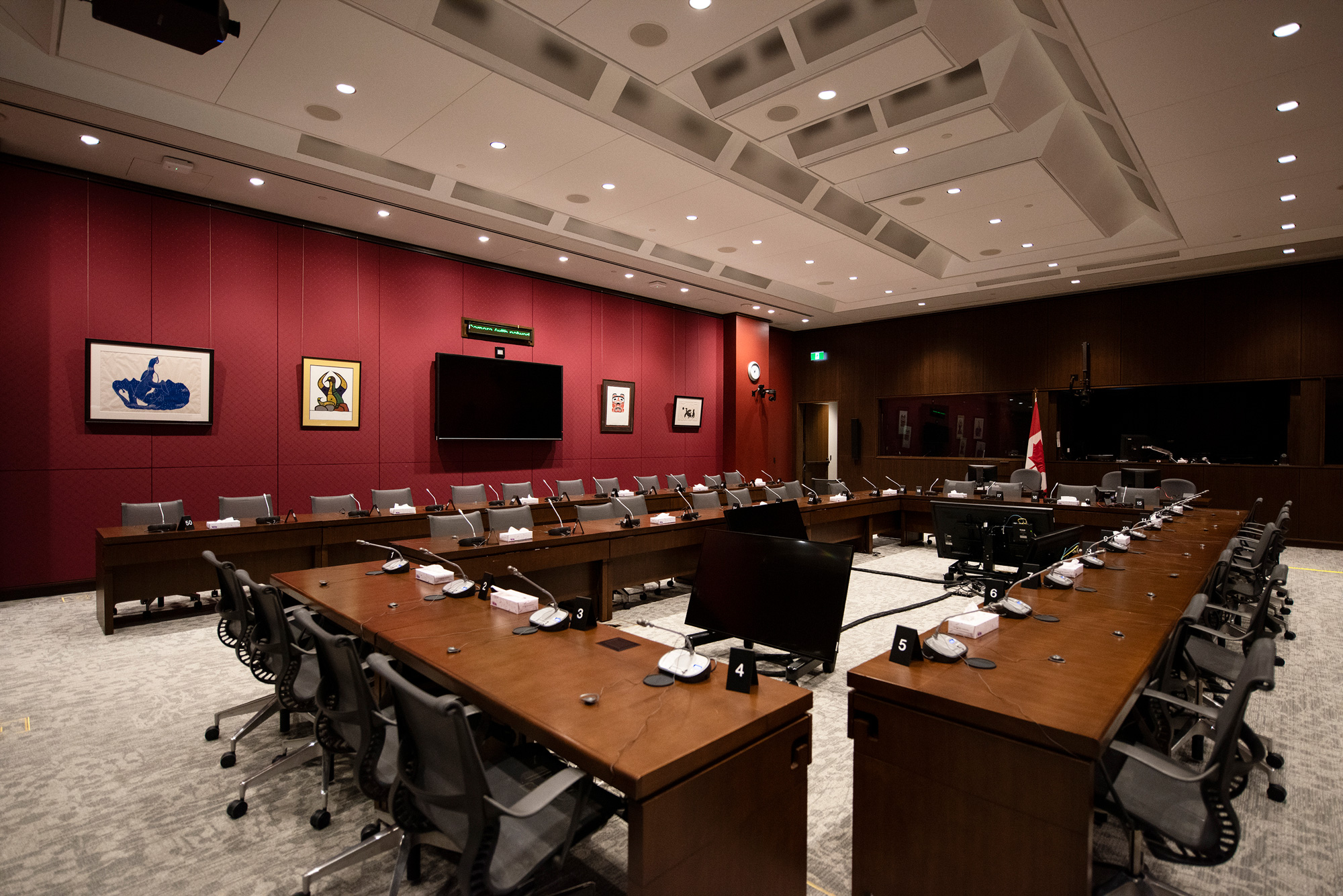About Committees
Senate committees perform some of the most important work in Parliament. In committees, groups of senators scrutinize proposed legislation, examine government spending plans and investigate matters of importance to Canadians.

Senators do this work through regular meetings where they hear directly from Canadians, who appear before the committee as witnesses to share their expertise and experiences. Meetings generally take place in Ottawa, but senators regularly travel to other parts of Canada on fact-finding missions. Committee members seek out all relevant evidence on the bills and issues before them. Their findings and recommendations are then reported back to the Senate and made public.
It’s work that gets to the heart of democracy; committees give Canadians a strong voice in Parliament to improve legislation and shape public policy.
For more detailed information on Senate committees, dive into the Fundamentals of Senate Committees and the Frequently Asked Questions. You can also see all the reports conducted by Senate committees since 1961 and read about the rules and procedures of the Senate.

Your top questions about committees answered
Who sits on committees?
Committees are made up of groups of about a dozen senators selected by the Committee of Selection. Any senator can sit on any committee, and membership generally continues for the duration of a session.
What do committees study?
A committee can study a bill, government spending or an issue related to its mandate, as determined by the Senate. A committee’s name shows its broad mandate (e.g. Human Rights, National Finance, Foreign Affairs and International Trade, or Agriculture and Forestry). Specific studies undertaken by most committees must be voted on by the Senate, which grants the committee an order of reference to conduct its study.
Are there different types of committees?
There are several types of committee. The most common are standing committees, which are permanent, issues-based groups written into the Rules of the Senate.
Subcommittees may be formed under these committees to study a specific topic (e.g. the Subcommittee on Veterans Affairs, which falls under the Senate Standing Committee on National Security and Defence).
Special committees are formed for a particular purpose and disband after issuing their final reports (e.g. the Special Committee on the Charitable Sector, which existed during the 42nd Parliament).
Joint committees include senators and members of Parliament (e.g. the Standing Joint Committee on the Library of Parliament).
A full list of current committees, their members and studies can be found on the Senate of Canada’s website.
What are committee reports and when are they produced?
Committee reports can change bills and influence public policy. After completing a hearing on a bill, study or administrative matter, the committee drafts and adopts a report with its findings. Reports often contain evidence-based recommendations or observations as well. The completed report is then presented or tabled in the Chamber for the rest of the Senate to consider. Reports are also posted online.
A committee may report a bill with or without amendments. Any amendments proposed by the committee report would be considered by the Senate. If no amendments are proposed, the report is deemed adopted and the bill proceeds to third reading.
Reports on special studies present findings and recommendations back to the Senate. Any recommendations adopted by the Senate become positions of the Senate. These are not binding on the government, but — given the wide range of evidence senators consider during their studies — they can be very influential.
How can I attend a committee meeting?
If you are in Ottawa, you can watch committee meetings in person*. A meeting notice for each committee is posted on the Senate’s website and shows when and where the meeting is taking place. If you’re planning on visiting, you can check out this quick guide to security screening processes at the Senate. You can also tune in remotely through Senate ParlVU, which offers live and on-demand streams of all Senate proceedings.
Witnesses are invited directly by committees to participate in a study. If you are interested in appearing before a committee or making a written submission on a specific study, you are invited to review the information provided on the For witnesses page.
*Public access to on-site meetings may be subject to restrictions due to the ongoing public health situation. Audio or audiovisual recordings of public committee meetings can always be accessed online.
Annual reports of Senate committees
Still have questions? Contact us.
Senate Committees Directorate
Chambers Building, 10th Floor
40 Elgin Street
Ottawa, ON K1A 0A4
1-800-267-7362
ctm@sen.parl.gc.ca
![]() Information for reproducing the proceedings of the Senate and its committees.
Information for reproducing the proceedings of the Senate and its committees.

